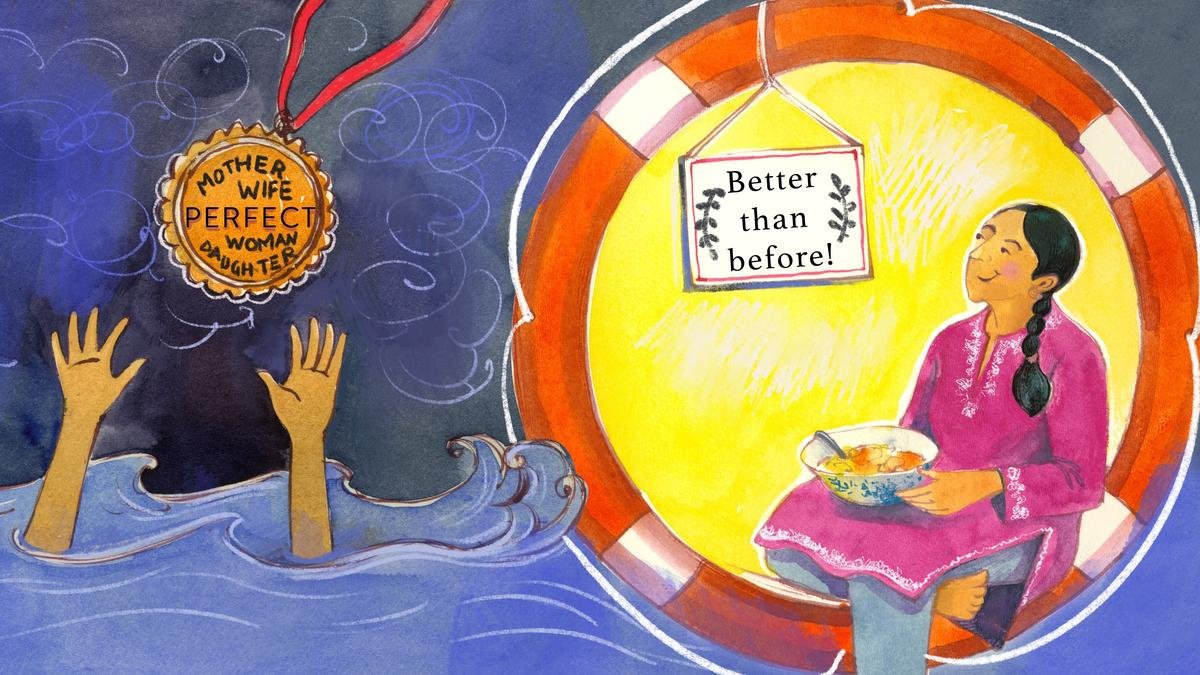I grew up in an environment where perfection was expected — all the time, and in all aspects of my life. You had to wake up at a certain time, get dressed for school without being reminded, be a straight A student, have only ‘good girls’ as friends, walk to school but pretend you have blinkers on, come straight home, and spend the rest of your time buried in your school books. If you didn’t do everything that was expected from you, you were met with ‘what will she do tomorrow when she goes to her in-laws place?’
It seemed to me that growing up was a military operation and all roads ultimately led to the biggest battlefield of all: marriage. Surprisingly, these rules didn’t irk me too much as I had grown accustomed to them. But what really got under my skin was that none of these regulations applied to my male counterparts. They were expected, at most, to be perfect at their studies.
It is no surprise that I became somewhat of a perfectionist, and while the people around me have always appreciated the end results of this attribute, no one except me has had to deal with the crippling anxiety and self-doubt that came with it.
For most of my life, I seemed to pull off one miracle after another. Until one day, when I unravelled. It was after the birth of my baby in my late 30s that life handed me more tasks than time. Having a baby is wonderful, but nothing prepares you for how many things you have to get done despite having little to no time to do them in, let alone get them done perfectly.

Once I had muddled out of the post-partum fog, I realised to my utter shock that I was still expected to function as an adult and continue to do other things apart from just caring for my baby. Now, that wasn’t the problem — or at least it wasn’t the entire problem. The problem was that I couldn’t understand why I couldn’t do everything the way I did them before I had the baby.
Why did the house seem to run away from me despite having wrestled with it just yesterday? Why was it impossible to keep making good home cooked meals every day? Why did I look like a train wreck? Where has my perfection gone? How would I go about getting it back?
One day, drowning in these thoughts and tears, and trying to get a baby to sleep on his own but who loved contact naps, I sat on the floor — well, I sat on a pile of laundry because I couldn’t see the floor — when my phone rang. It was Phuphee.
I told her everything about how the mighty had fallen. She listened patiently, with only the sound of her inhaling her cigarette smoke assuring me of her presence.
‘You know, when I had my first baby and I came back home after six months, I realised my brain felt like it had stopped working. I thought I was ill, but Aapa [maternal grandmother] said it was normal and that in due time it would start working again,’ Phuphee said.
‘You know what is funny,’ she continued, ‘everyone around me behaved as if I hadn’t had a baby. They expected me to function just like I did before. But that wasn’t the worst part. The worst part was that I expected myself to function like that. One day I remember I had swept the entire house, only to find that there were parts that were not done properly. I wept. All day I cursed my inability to do things normally, but then a thought suddenly hit me. I realised I was being unkind to myself. This body and mind had carried me through everything in life so far and, had it been another person, I would have washed their feet and made them a meal and said thank you. But here I was being ungracious to myself.’

‘So I got up and because I had missed the evening meal while drowning in my misery, I went to the daan and made doade thool [fried egg cooked in a milky gravy seasoned with turmeric, cumin and green chillies]. I realised while making it that though doade thool was the simplest thing I could make for myself, it was nourishing. It wasn’t grand, but it was goadnyik khoat asel [better than before] — before when my stomach had been empty. The next morning when I completed any task, I simply told myself ‘goadnyik khoat chu asel’ and carried on.’
‘Boaz myoan shoosh [listen to me, my lungs],’ said Phuphee, ‘when a baby is born, it is like it is another country, and you have to learn its new customs, language, and laws. This idea that women are meant to go back to being who they were before giving birth comes from idiots and men, and it is never a good idea to take advice from either. You know, had men been given the ability to bear children, we would have an entire branch of medicine dedicated to its alleviation and an entire industry, too.’
It was this simple phrase ‘goadnyik khoat asel’ that saved my life. It taught me how to slow down in a world that is constantly pushing mothers to strive for perfection, but is instead pushing them deeper into depression, anxiety and self-loathing.
I understood that it was possible to do many things while taking care of a baby, but it wasn’t possible to do everything. So, whenever I was faced with a hurdle, I told myself my effort was enough and it was ‘goadnyik khoat asel’, and carried on because truly there are times in your life when surviving is the same as thriving.
Saba Mahjoor, a Kashmiri living in England, spends her scant free time contemplating life’s vagaries.
Published – July 26, 2025 12:34 pm IST
